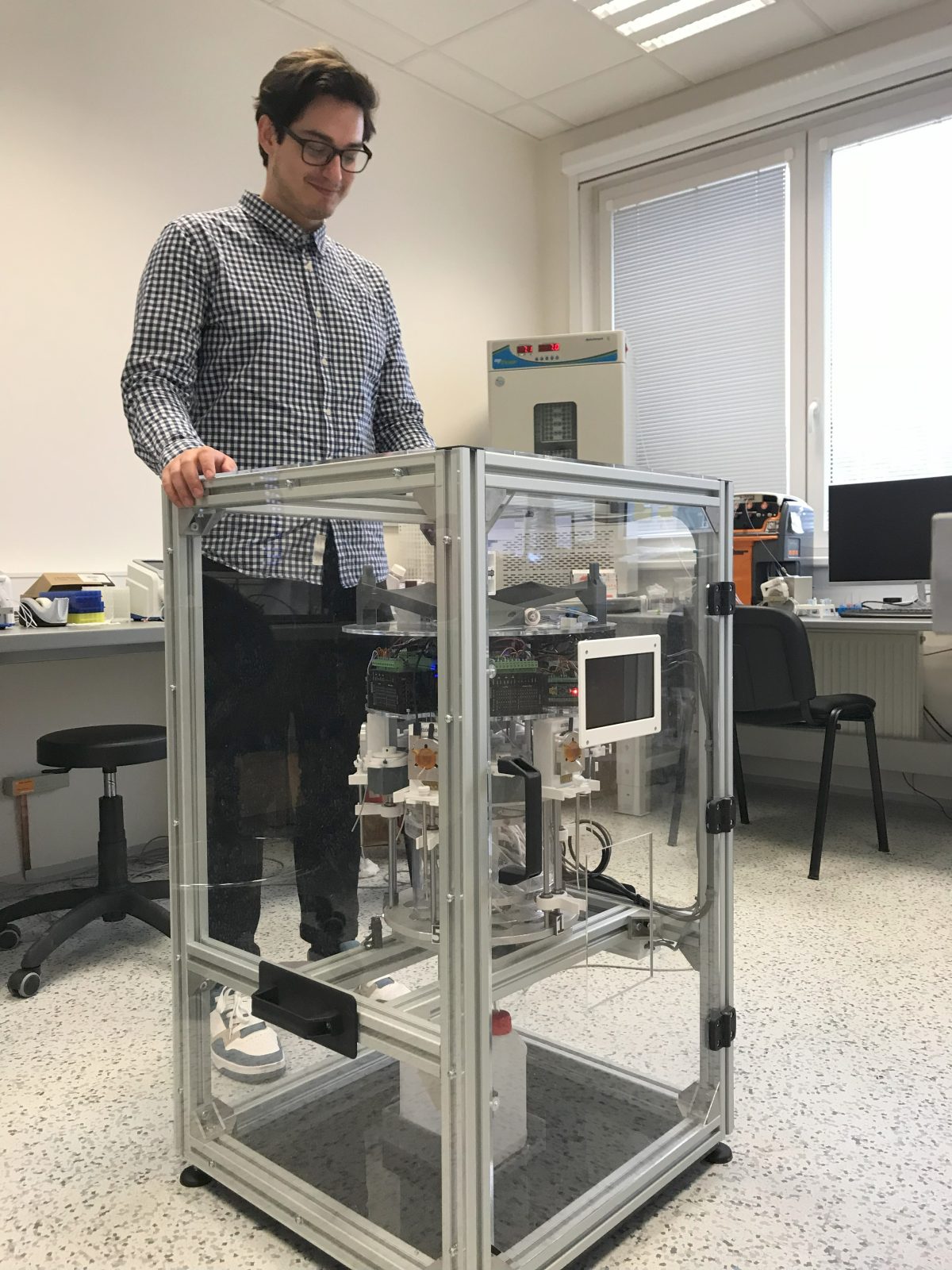Martin Csiba completed an internship at the Laboratory of Functional Biointerfaces at the Section of Optics of the Institute of Physics of the CAS. The internship helped him to clarify how he would like to continue his career path, and he is now pursuing his PhD studies at the same laboratory. “I was a bit worried about moving to Prague and actually going into something blind, so I was very pleased and reassured by the opportunity to do an internship where I could try everything out for real and I found it great,” says Martin about the transition to PhD studies.
What doctoral programme are you studying and why did you choose it?
I am studying P4F4 program focused on biophysics, chemical and macromolecular physics. Of the PhD programmes on offer, this programme was the closest to the biomedical physics I studied at undergraduate and masters level. My colleagues were also studying this programme, so based on their positive feedback I decided it was probably the best choice.
Does it differ thematically from your previous internship at Radius Centre?
Thematically, I am building on my previous internship. This provided me with an introduction to the field of research into functional biointerfaces, in particular polymer brushes, which is the theme of our team. I believe that my studies will deepen my knowledge in this field, but also in biophysics in general.
Have you considered any other doctoral programme elsewhere?
Because I was studying for a master’s degree at Comenius University in Bratislava, they offered me a PhD programme there. But I felt that I needed something new and I also wanted a change of environment, so I chose Prague.
What is the difference between a Master’s and a PhD?
I think they differ mainly in intensity. There is much more room for experiments and writing articles in the PhD programme, and there are much fewer courses. It’s more individual. Both the B.A. and the M.A. are about lectures and courses. The master’s involves a bit more work in laboratory and the PhD is already fully focused on independent research.
Was this change difficult for you?
I think it would be a problem if I went straight from full-time study to writing papers and working in a lab. For me, the transition came naturally, mainly thanks to the internship, which prepared me for the change. I saw how things work in the lab and how to work as a team, from writing papers to experimenting.
How do you like it so far at the FZU? Are you satisfied with your choice of doctoral studies?
I am totally satisfied so far! I was a bit worried about moving to Prague and really going into something blind. So I was very happy and reassured by the possibility of an internship where I could try everything out and I found it great. The focus is similar to that of my Master’s degree, and so was my thesis. I worked on nanoparticles, and their interactions were monitored by means of QCM and electrochemical methods. I’m doing something similar now. But there are also optical methods.
Did the internship motivate you to apply for this PhD?
Definitely yes! In fact, I approached Dr Lísalová (Head of Laboratory of Functional Biointerfaces) myself and asked if it would be possible to work with her on my PhD. She offered me an internship to give it a try.
Did FZU provide you with support in arranging your internship? What kind of support?
The institute provided me with support from the very beginning of the communication. In addition to my supervisor, I also communicated with Petra Kratochvílová from HR team, who helped me with all the administrative aspects of the internship, such as completing the Learning Agreement and submitting the internship application through the Radius Centre form. She also provided me with the questionnaires and forms needed to work at the FZU. So the help with arranging the internship was excellent.
Would you recommend other students to do an internship before their PhD studies?
I’m sure I would! You have to try out what you’re getting into because the PhD itself is four years and it’s not the best thing to find out after a year that it’s not the right thing. It’s definitely nice to come to an internship and try everything and decide whether to continue or change. I think internships are generally very good. I came to my internship through an Erasmus+ project, so everything was well funded and I was able to cover all my living costs easily.

